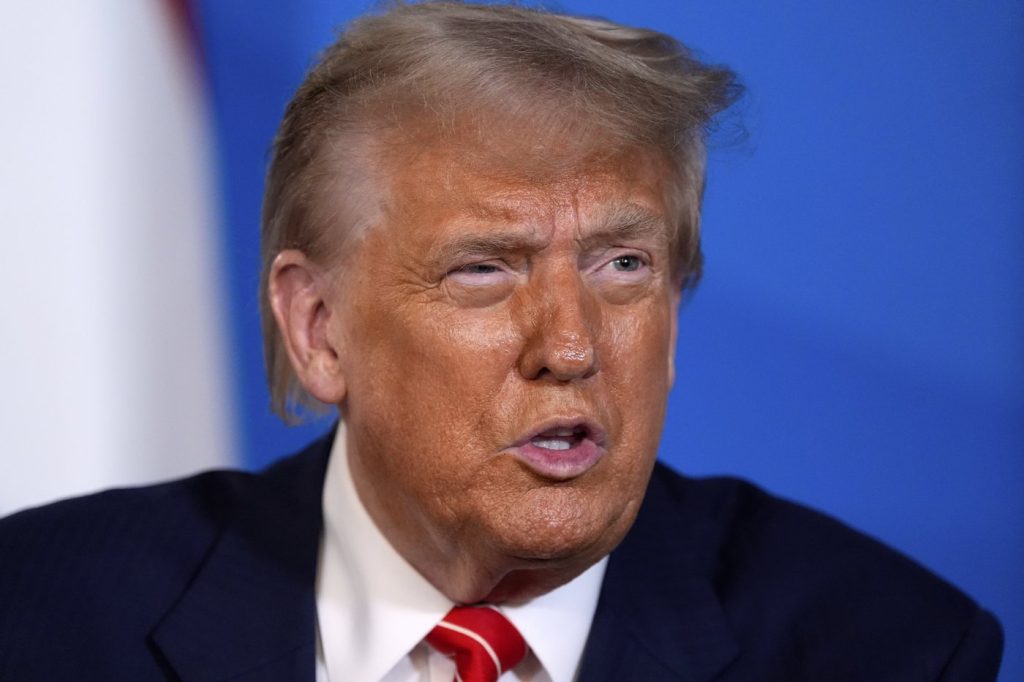On Wednesday, June 25, 2025, at the NATO summit in The Hague, Netherlands, President Donald Trump vehemently rejected a preliminary intelligence assessment that indicated U.S. military strikes had only slightly hindered Iran's nuclear program. Trump asserted that U.S. intelligence agencies lacked comprehensive information and maintained that the strikes had dealt a significant blow to Iranian nuclear facilities.
Describing the military operation as a "devastating attack," Trump claimed it had "knocked them for a loop." His statements came shortly after the airstrikes, during which his administration rushed to validate his assertions that Iranian facilities were "completely and fully obliterated." In anticipation of further support, Trump announced a news conference featuring Defense Secretary Pete Hegseth and other military officials to reinforce the impact of the strikes on Iran’s nuclear capabilities.
The issue dominated the discussions at the NATO summit, which otherwise focused on European security. The White House emphasized Israeli claims that Iran's nuclear efforts had been delayed for years—much longer than the short period indicated by U.S. intelligence reports. In contrast, a representative of the Iranian foreign ministry acknowledged that while some damage had been done to the facilities, it did not support Trump's more exaggerated descriptions.
Secretary of State Marco Rubio characterized Iran's nuclear ambitions as significantly further from realization following the strikes than before. However, expert assessments remained cautious due to the timing of the strikes, making it difficult to establish their long-term effectiveness. Jeffrey Lewis, a nonproliferation professor, noted the contradiction in Trump's statements; if it was indeed too early to assess the scale of destruction, then claiming total obliteration seemed misguided.
Trump's remarks also raised questions regarding future diplomatic efforts in the Middle East, especially concerning Iran's potential to regenerate its nuclear program. He announced that U.S. and Iranian officials would soon resume high-level talks, albeit downplaying their necessity by asserting that Iran was too damaged to rebuild. Trump asserted, "I don’t care if I have an agreement or not," emphasizing he believed Iran's nuclear ambitions were stymied.
While Iran contended that its nuclear program is intended for peaceful purposes, U.S. and Israeli leaders have routinely warned it could lead to developing nuclear weapons. The incident incited Trump's enduring disdain for intelligence leaks and those he perceives as part of a "deep state," with him launching verbal attacks on media outlets that publicized classified intelligence assessments.
The intelligence report in question was compiled by the Defense Intelligence Agency. According to Frank Montoya, a former counterintelligence leader, preliminary reports are generated rapidly to assist military operations too soon after events transpire. Leon Panetta, who served as a top national security official under President Obama, reiterated the need for time to accurately understand the strike's ramifications.
Despite this cautious tone, Trump administration officials rallied behind the president's narrative. CIA Director John Ratcliffe stated there exists "a body of credible intelligence" signifying considerable destruction of Iranian facilities that would necessitate years for restoration.
Trump criticized media narratives questioning the effectiveness of the strikes. He had previously characterized the operation as a definitive end to what he dubbed "the 12-day war," drawing parallels to World War II's conclusion with atomic bombings. Highlighting satellite imagery that purportedly showed extensive damage, he insisted that operations successfully rendered critical facilities inoperable.
Amid political challenges, the administration plans to restrict the flow of classified information to Congress following the intelligence leak, a move likely to face pushback from lawmakers. Originally intended for Tuesday, briefings for legislators are now rescheduled for later this week.












